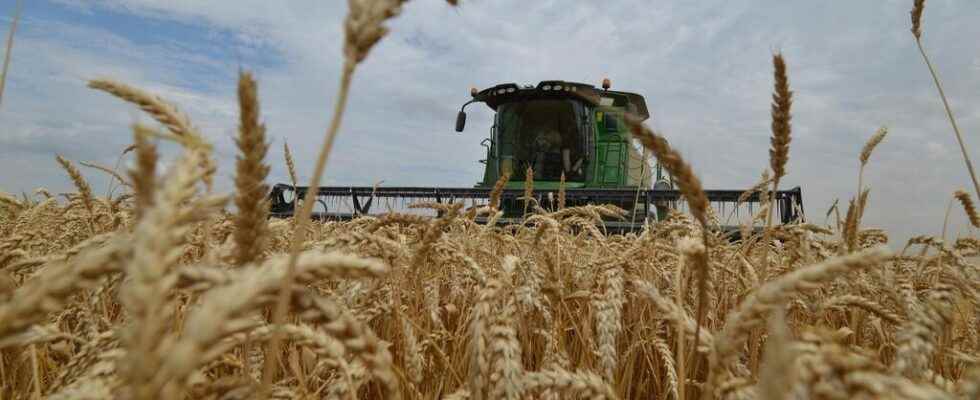The grain agreement signed in July by kyiv and Moscow to allow the continuation of Ukrainian grain exports through the Black Sea will be extended by 120 days from November 19. This was announced on Thursday by the Ukrainian Minister of Infrastructure, welcoming a step ” important in the fight against the global food crisis “.
The news of the extension of the agreement was quickly confirmed by Turkey, the main mediator of the agreement. This agreement is concluded under the aegis of the United Nations and its proper implementation is ensured from a coordination center based in Istanbul, reports our correspondent in Istanbul, Anne Andlauer.
UN Secretary General Antonio Guterres has greeted the news in a statement sent by the Istanbul-based Joint Coordination Center (JCC), which oversees boat movements through the Bosphorus.
I welcome the agreement by all parties to continue the Black Sea Grain Initiative to facilitate the safe navigation of export of grain, foodstuffs and fertilizers from Ukraine.
The initiative demonstrates the importance of discreet diplomacy in finding multilateral solutions.
— António Guterres (@antonioguterres) November 17, 2022
When Ukraine and Russia each signed this grain agreement July 22 in Istanbul, the text provided for its automatic extension after 120 days, unless one of the parties decides otherwise. The survival of the agreement remained uncertain, however, because the Russia had suspended its participation for a few days between late October and early November. She had only reinstated him after a intense diplomatic activity between Moscow and Ankara.
11 million tonnes of agricultural products exported in the space of four months
On Wednesday, Turkish President Recep Tayyip Erdogan appeared optimistic, hoping for the extension of the agreement for one year. This is what Ukraine wanted. It will finally be 120 days, under the same conditions. The UN, which is also a party to the agreement, declared itself fully committed to removing obstacles that hamper the export of agricultural products and fertilizers Russians, a point to which Recep Tayyip Erdogan also said he was very attentive.
In less than four months, the agreement allowed the export of more than 11 million tons of Ukrainian agricultural products. Before leaving or entering the black Seaall ships are inspected off Istanbul by a team of Russians, Ukrainians, Turks and UN representatives.
These cereals are essential for stabilizing prices on international markets and for supplying the populations most vulnerable to the risk of hunger, particularly in Africa. Of the 11 million tonnes exported to date, about 40% has gone to developing countries.
►To listen also: Corn: a tense global balance sheet coupled with an unknown Ukrainian
(and with AFP)
